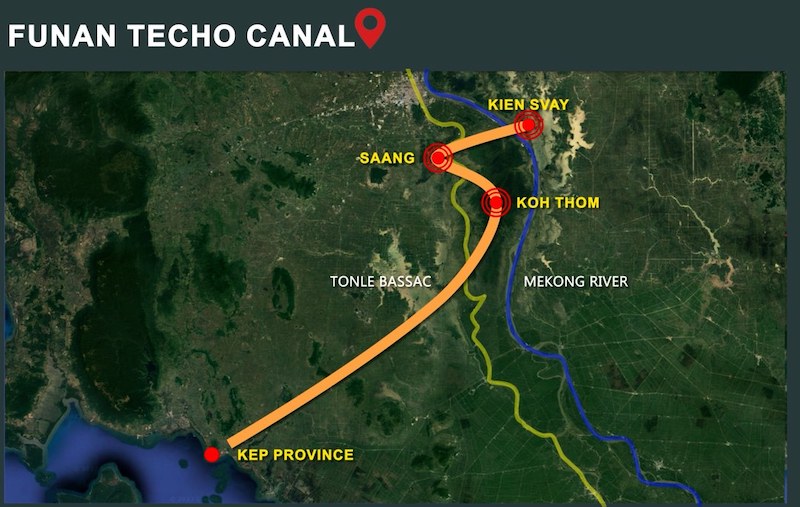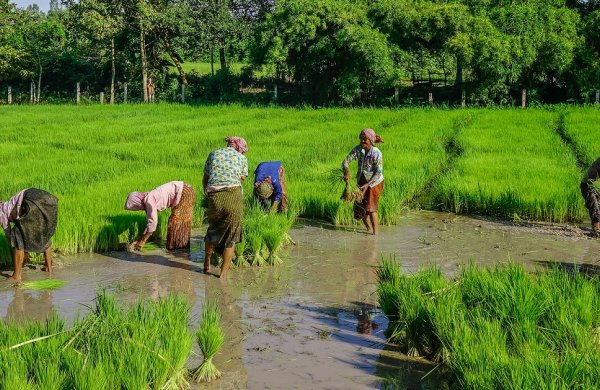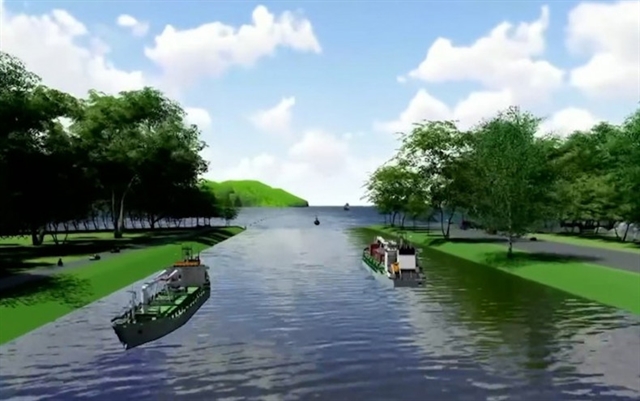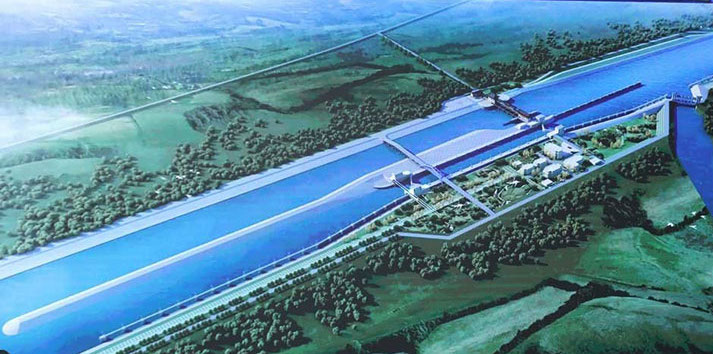Cambodia’s enthusiasm for a $1.7-billion Chinese-funded project to expand a canal from the Phnom Penh port to the Gulf of Thailand has spurred concern about its environmental impact on the Vietnam’s “rice bowl” and whether it will cause friction with Hanoi.
Cambodia has said the upgrade of the Funan Techo canal would slash shipping through Vietnamese ports and yield other economic benefits for the country.
However, conservationists and Vietnamese authorities have voiced alarm at potential damage to the already fragile Mekong Delta, a massive rice-producing region supporting millions of people downstream in Vietnam.
ALSO SEE: China Home Sales Plunge by Half During May Day Holiday

Cambodia deputy prime minister Sun Chanthol said the 180km-long project would cut shipping through Vietnamese ports by 70% once the four-year project is completed.
Sun Chanthol downplayed environmental concerns about the canal project – due to begin later this year – and dismissed speculation that it could be used to allow upriver access for Chinese warships as “baseless”.
The project has the potential to reignite tensions between Cambodia and Vietnam, which are close partners but have often clashed.
Sun Chanthol said the canal would also be used for land irrigation and fishing, adding that the canal’s shorter route to the sea for barges and ships to and from Phnom Penh, carrying textile and raw materials, would reduce greenhouse gas emissions.
He claimed the amount of water that would be diverted to the call would be “a drop in the bucket”.
Hanoi, river management body request details
Cambodia has notified the Mekong River Commission (MRC), an intergovernmental group for joint management of the river basin, but would not consult other countries in the region about the project, he said.
If requested, Cambodia would provide additional information with the MRC, but had no legal obligation to do so, he said.
The MRC said that Cambodia had not shared the canal’s feasibility study despite multiple requests and two formal letters sent in August and October.
A spokeswoman for Vietnam’s foreign affairs ministry said in a statement that she hoped Cambodia would share information and coordinate with Hanoi to assess the impact of the project.

‘Threat to rice output, wetlands’
Currently, about a third of cargo to and from Cambodia goes via Vietnamese ports for their global trade by sending them down the Mekong River. But Sun Chanthol said that with the expanded canal the goal is to reduce that to 10% – which would represent a 70% drop on current shipping volumes.
The upgraded 180 km canal would be 100 metres (328 feet) wide with a depth up to 5.4 metres (18 feet), allowing barges and ships with a 3,000 deadweight tonnage to use it, Sun Chanthol said.
“This project has a minimal impact on the environment,” he said, noting it would discharge up to 5 cubic metres of water per second, versus Mekong’s 8,000 cubic metres per second. “The canal is the size of a straw,” he stressed.
But, the limited capacity of the canal “brings its economic viability into question,” according to Ted Osius, a former US ambassador to Vietnam and current head of the US-ASEAN Business Council, an influential advocacy group.
And leaders and farmers in Vietnam have other concerns.
“This project can lead to the displacement of established populations, loss of agricultural lands and reduction of wetlands,” said Nguyen Hung, a specialist in supply chains at RMIT University Vietnam, echoing concerns raised by Vietnam National Mekong Committee.
Brian Eyler, programme director on sustainability at US-based think tank Stimson Center, said the canal would “reduce water available for industrial-scale rice production in Vietnam”.
Eyler said the project requires consultation with other partners under Mekong River Commission rules because the Bassac river, from which water will be diverted, is a branch of the Mekong and not a tributary.
But for Sun Chanthol the project concerns only tributaries of the Mekong, including the Bassac, and therefore does not require consultation with partners.
The canal “will benefit the 1.6 million Cambodians living along the canal” thanks to better irrigation for farming, Sun Chanthol said, adding that impact on the Mekong basin’s water resources would be monitored.

China seen tightening its grip on Cambodia
China Road and Bridge Corporation, a major Chinese state-owned construction company, will develop the canal and fully cover its costs under an agreement with the government of Cambodia, Sun Chanthol said, noting the company in exchange will obtain a multi-decade concession.
“Is it 30 years, is it 40 years, is it 50 years, that will be discussed during our negotiation,” he said.
CRBC did not respond to a request for comment.
Sun Chanthol said speculation that the canal could be used by China for military purposes was “absolutely untrue”.
“Our constitution does not permit any foreign military in the country,” he said.
A Vietnam-based Western diplomat also dismissed as “somewhat exaggerated” warnings from Vietnamese academics about security risks for Vietnam, because of the limited depth of the canal and the size of the locks.
However, analysts say the Belt and Road project would extend Beijing’s already strong influence over the small nation at a time when there are major tensions between Beijing and other ASEAN members in the South China Sea.
- Reuters with additional input and editing by Jim Pollard
























